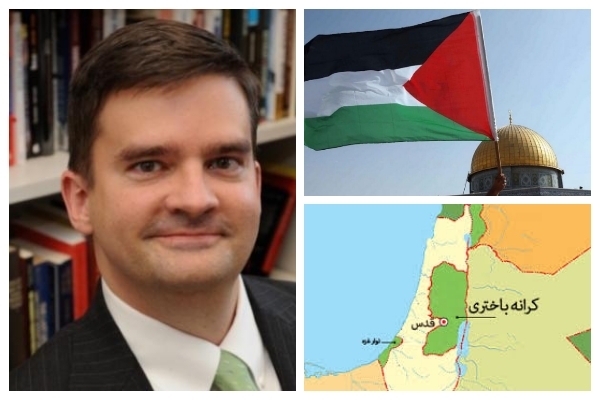‘Brutal’ Policy of Settlements Hampering Solutions for Palestine

In an interview with IQNA, Professor Christopher J. Fettweis, Professor of Political Science at Tulane University, talked about a number of challenges that the US foreign policy is facing including Ukraine, Palestine, and the Iranian nuclear deal.
Professor Christopher J. Fettweis is an American political scientist and Professor of Political Science at Tulane University. He is known for his expertise on American foreign relations. He is the author of books on American foreign policy, the most important of which are Making Foreign Policy Decisions: A Presidential Briefing Book, Transactions Press, 2015 and The Pathologies of Power: Fear, Honor, Glory and Hubris in US Foreign Policy, Cambridge University Press, 2013.
IQNA: It has been more than two years since Joe Biden was elected President of the United States. What do you think have been Biden's biggest foreign policy challenges?
Fettweis: All of President Biden’s foreign policy challenges became secondary when Russia invaded Ukraine. The possibility of that conflict spreading is the biggest issue in the world today, at least in the short term. In the long run, the JCPOA might be more important, but for now Putin’s invasion is the top challenge.
IQNA: The Middle East has always been of great importance to the foreign policy of American governments. What do you think Biden's policies have been like in the Middle East, especially in Afghanistan?
Fettweis: I was disappointed in how the withdrawal from Afghanistan took place, but it was the right policy. The fault was much more with the incredibly corrupt and incompetent government in Kabul. The United States squandered many lives and many billions of dollars trying to build a coherent state in Afghanistan.
IQNA: Some argue that the US withdrawal from Afghanistan and the re-emergence of the Taliban is a waste of the cost of fighting the Taliban over the past two decades, leaving Afghanistan's political arena to US rivals in the region such as Russia and Pakistan. To what extent do you agree with this?
Fettweis: I don’t think it matters much who is influential in Afghanistan. If the Russians want to try to wield influence there, let them try.
IQNA: In recent days, we have seen an increase in tensions in the Occupied Palestinian Territories between the Palestinians and Israel. Why do you think none of the Republican and Democrat governments in the United States have managed to succeed in resolving the Palestinian question?
Fettweis: That is an intractable conflict. The United States has limited influence over the Israelis – four presidents prior to Trump urged them not to expand the settlements in the West Bank, and all were ignored. There will be no resolution to this conflict in our lifetimes, I’m afraid. Both sides had their chance in the late 1990s, and they blew it. The Palestinians will continue to live in unjust circumstances, and the Israelis will never be at peace either.
IQNA: Some believe that the two-state plan to resolve the Palestinian issue has failed due to Israeli settlements and policies. How close is this to reality?
Fettweis: That is one of the main reasons; it is a brutal policy. The Palestinians have never had enlightened leadership either, though. Think of what the situation might have been like had either side ever been led by someone like Nelson Mandela.
IQNA: In the case of Iran, contrary to expectations, we see that the US has not returned to the nuclear deal, and negotiations are suspended from time to time. To what extent do you think it is possible for the US to return to the JCPOA?
Fettweis: The most important thing the Biden Administration can do is restart the JCPOA. It is by far the biggest long-term issue that it faces – and I am very disappointed in this administration so far about it. The stumbling point about the terrorist designation for the Republican Guard is so stupid – it is a symbolic issue with no practical importance, so both sides should not let it stand in the way of a new deal. Restarting the agreement is in the best interest of both sides. I really hope that a new arrangement can be made soon.
And remember that in negotiations deals are often declared dead many times before they are signed. It is not too late to find a compromise
IQNA: The 2022 United States House of Representatives elections will be held on November 8. Given the high probability of the Republican Party's success because of Trump's support, how likely is it that the Biden administration's foreign policy will change in the next two years?
Fettweis: I don’t see it changing much. The Congress does not have much influence over US foreign policy, which is largely determined in the White House. And today’s Congress is almost 50-50 – the Biden Administration does not consult it much anyway. There are not enough votes in the Senate to ratify the JCPOA if it were a treaty, for instance, so it is being pursued as an “Executive Agreement,” bypassing Congress. Not much will change if either or both houses flip to the GOP in 2022.
Interview by Mohammad Hassan Goodarzi
The views and opinions expressed in this item are solely those of the interviewee and do not necessarily reflect the position of International Quran News Agency.



